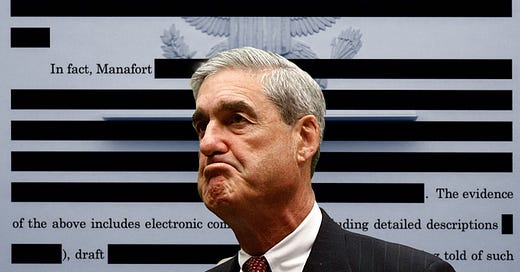Attorney General William Barr has promised to Congress as much of the information from the Mueller report as he can give them, consistent with relevant law and regulations. There are three categories of information Barr is likely to withhold from Congress.
Information pertaining to ongoing investigations. The special counsel’s office spun off a series of other prosecutions in the main Justice Department, the most notable of which was the prosecution of Michael Cohen in the Southern District of New York. The same office is investigating whether President Trump violated campaign finance law by indirectly giving hush-money payments to Stormy Daniels and Karen McDougal during the 2016 elections, and possible financial wrongdoing by President Trump’s inauguration committee.
It’s standard practice for the Department of Justice to withhold information pertaining to ongoing investigations if the information would hinder the prosecution if it were to become public. Any information in the Mueller report that pertains to open cases is likely to be withheld from the public
Other ongoing investigations related the Mueller probe include: foreign financing of a pro-Trump Super PAC; the prosecution of a Russian accountant for a group charged with “foreign influence activities directed at the United States”; the Turkish scheme to forcibly repatriate the dissident cleric Fetullah Gülen, tax evasion by the Donald J. Trump Foundation, and the prosecution of Trump confident Roger Stone for lying to investigators.
Grand jury information. In his letter to Congress, Barr specifically mentioned information pertaining to Rule 6(e) of the Federal Rules of Criminal Procedure. The rule requires that “Except while the grand jury is deliberating or voting, all proceedings must be recorded by a court reporter or by a suitable recording device.” The recorded information is secret and can be used only for specific government functions, such as by prosecutors or for foreign intelligence collection. The information can become public only by court order. The rule protects people who are suspected of crimes but not indicted.
Muller convened at least two grand juries, one in the District of Columbia and another in the Eastern District of Virginia. The D.C. grand jury is still embroiled in a legal battle over a subpoena it issued to a foreign company. The website of the special counsel offers no updates on the Virginia grand jury since it indicted Paul Manafort and Rick Gates in 2018.
Any information that the special counsel used in securing search warrants, indictments, or other matters before the grand jury is covered by Rule 6(e). Adam Schiff, chairman of the House Intelligence Committee, introduced legislation that would exempt the president and his family from the protections of Rule 6(e) if any of them received a pardon, but that legislation is unlikely to advance since Mueller didn’t recommend indictments for the president or his family.
Other national security information. The Mueller team leveraged foreign intelligence capabilities in its indictments against Russian intelligence operatives, individuals, and business for election interference. Any information that could indicate how Mueller’s team obtained the information, which included personal information of Russian military intelligence operatives, will likely be withheld for national security reasons, to protect sources and methods.
There are other reasons as well that Barr may decide to redact information from the Mueller report before giving it to Congress, including if the president tries to invoke executive privilege over the report. With House Democrats and even some Republicans devoted to seeing the whole report, any redaction could trigger a court fight.





